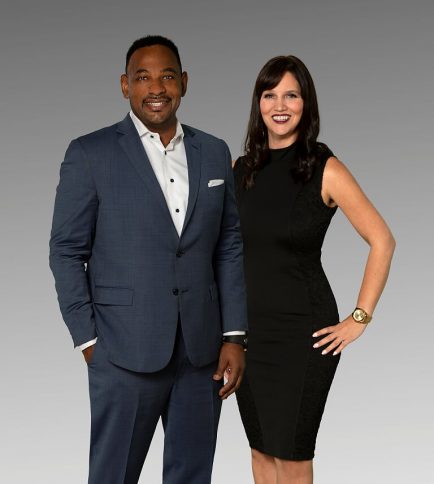6 Common Home Buying Myths vs Facts
Like any major life and financial decision, buying a home can take a great amount of research and planning. The housing market continually evolves, so it’s important that you do your research on vital housing questions such as interest rates, down payments, and prices of homes. Let’s bust some of the top home buying myths that might be keeping you on the sidelines.
Debunking 6 Common Home Buying Myths
I don’t have a perfect credit score so I can’t get a house
This is one of the most common home buying myths; one that holds backs a ton of buyers. Just because you don’t have a credit score in the 700 or 800’s, doesn’t mean you can’t buy a house. The minimum score to buy a home with a conventional loan is 620, and the minimum score to buy a home with an FHA loan is 580. Yes, with a lower score you may be stuck with a higher interest rate, but you would still be able to buy a home. If you are set to buy a home with a conventional loan, lenders can help you through credit repair which will help you qualify for a conventional loan in a timely fashion.
If I buy with a bad credit score, I’ll be stuck with a bad interest rate for 30 years
When people think this way, they sometimes miss buying at the best time financially. Just because you have a 5% rate today, does not mean you are stuck with that rate for the entirety of your loan. You can always refinance, modify and reset, and you probably should do that. If you refinance when the interest rate is 3.3%, that could lead to a $129 savings each month!
Only people who make a lot of money can afford a house these days
If you and your spouse make more than $25,000 you may be able to afford a $110,000 mortgage. The important factor is your debt-to-income ratio. If you have a lot of other debt such as credit card debt, student loans, car payments, etc. you won’t be able to afford as high of a mortgage. If you don’t have much other debt you will have a better debt to income ratio, which will in turn allow you a higher mortgage. 36% or below is considered an OK debt to income ratio. According to Zillow, the average cost of a home in the US is right about $250k, which also means there are homes less than that on the market.
It’s cheaper to rent
When you rent, you never see your money again, but when you buy, you get it back in the future and likely more than what you purchased it for if you sell your home when it’s a sellers market. The average monthly mortgage payment is $882. In most markets, it is still the case that each square foot is cheaper to buy than rent. Remember, when you buy a home it’s an investment, so it may be a couple hundred dollars more per month, but you’ll see the big difference when you want to sell your home in the future.
It’s impossible to save 20% down
Mortgage lenders occasionally open programs that allow 1% down programs to the public up to a certain ceiling of house price. FHA loans asks for as low as 3.5% down. So no it’s not necessary to pay 20% down to buy a home. On a $110,000 home that’s under $4000 which is about as much as a down payment on a car!
I’m too young/old to buy a home
Age shouldn’t be the determining factor of when you buy a home, it should be more dependent on where you are financially and if you’re ready for a mortgage payment and all other expenses that come with buying a house. If you find yourself in a stable job and you are actively paying off debt in other areas of your life, it is a good idea to start talking to mortgage lenders/realtors about what steps to take to begin the home buying process.
Home buying myths are just that – they only hold the power over you that you grant to them. If you’ve been letting perceptions keep you from buying a new home, reach out to us at no cost or obligation to find out what your options might be!







